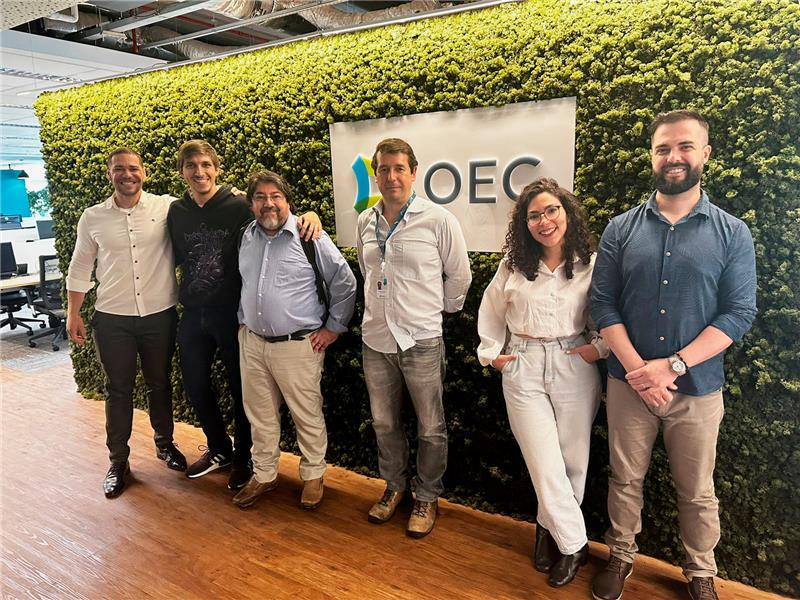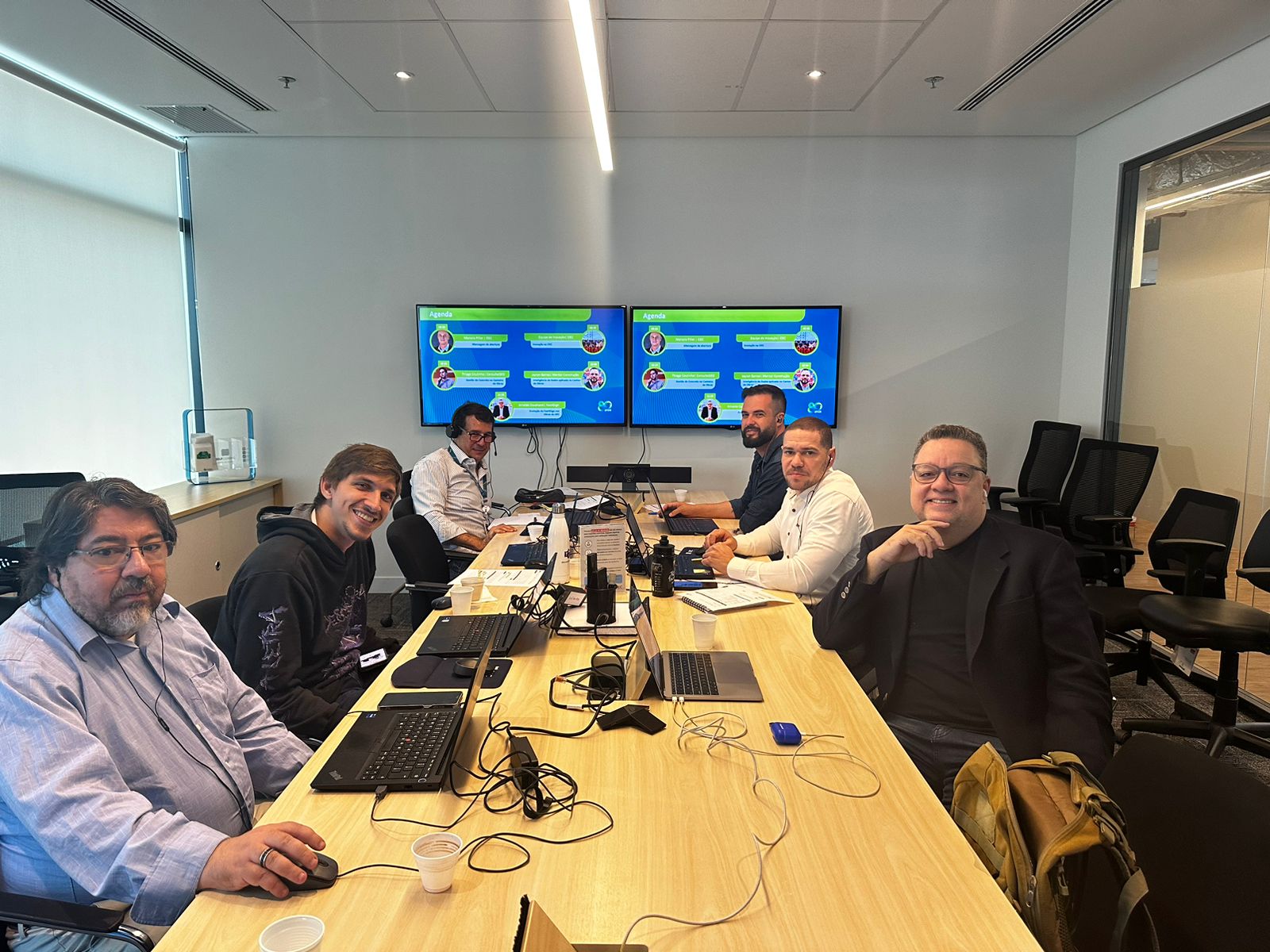The Cantareira Consortium, serving the concessionaire Via SP Serra, completed last Friday (February 6) the opening of the outer...
OEC promotes the 2nd Innovation Workshop
DATE: 10/30/2024

On October 15th and 16th, OEC held the second edition of the Innovation Workshop. The event, which featured lectures by professionals in the field, aimed to discuss trends and technological advances in the civil construction sector.
The opening of the Workshop was with a message from Marcelo Piller, Director of Engineering and Innovation at OEC, who spoke about the mission of the area and its achievements. “We have had several outstanding programs in the Innovation area of OEC. Over the past few months, we have developed numerous topics in contracts, which is our main objective. It is there that these gains and initiatives really flourish.” And he complemented with a special request: “I would like to ask all members to join this program. We have many topics that can still be defined. Ideally, demands should always come from contracts to the corporate, so we can try to support them as much as possible,” he emphasized.
Next, it was the turn of the Innovation team. Rafael Malfato and Daniel Lepikson presented the projects the area has been working on in recent months, while Adhemar Travassos and Sarah Silva talked about Artificial Intelligence and Innovation Culture. After the area updates, the first external guest of the day, Thiago Coutinho, co-founder of ConsulteGEO, talked about how technology has advanced concrete management on construction sites. His platform aims to assist works with precise monitoring of concrete use, contributing to more sustainable projects.
Jayron Barros, founder and CEO of Mentor Construção, presented data intelligence applied to construction sites. According to Jayron, the main cause of failures in the execution of works is due to ineffective management. “Today we bring what we call the ‘Pillars of Success of Operational Excellence,’ demonstrating how we can combat waste and deviations, making a work more efficient,” he explained.
Finally, Arnaldo Cavalcanti, CEO of Fast4Sign, talked about the work carried out by his company in partnership with OEC in the digitalization of signature processes – adapting them to the paperless model. For Arnaldo, this process can change the excessive use of paper, contributing to a more sustainable world.
Second day

The second day of the Workshop was started by Francisco Peltier, from the Innovation team. The first external speaker of the day was Evellyn Satelis, Business Manager at Rainbow Tech, who talked about automation and resource optimization in third-party management. The tool presented by her is a platform aimed at controlling and managing accessory obligations, documents, and contracts of service provider companies and their employees, optimizing time and speeding up document management, eliminating a large volume of physical documents.
Then it was the turn of Clarissa Martins and Fernanda Tauffenbach, from Deloitte, who talked about the main trends and technologies that are transforming the civil construction sector. According to Clarissa, we are living in a technological supercycle, which she defined as “moments when we have a great convergence of technology, applications of these technologies, and business opportunities that arise from this development.” They used companies like Apple and Tesla as examples. “We see the growth of robotics, with the use of domestic robots, but we will see that this will also impact the industry in engineering and construction, how we will work with robotics thinking about heavier services and industrial services,” she explained. Clarissa presented a study conducted by Deloitte that showed the 12 technologies that will most impact the future of engineering, highlighting BIM (Building Information Modelling), Digital Twin, and the use of drones, which are very present in current discussions on the topic.
The next guest was Cesar Calderaro, from Construtivo, a member of RICS, from England, who talked about the topic “Exploring the potential of point clouds during all phases of the asset lifecycle.” For him, we live in an era of abundance of technology, much more accessible and cheaper than 20 or 30 years ago. The current challenge, according to him, is how to incorporate it into production and processes, bringing more productivity and efficiency.
The last participant of the Workshop was Kelvin Montini, from ConstrucIN, who addressed the “Advancement of reality capture and digital twins in works.” According to him, with digital twins, companies can identify potential problems before they occur, generating the predictability that is always sought in engineering. “The main point to highlight is the use of AI as a means to achieve the expected goals,” he said.



No comments